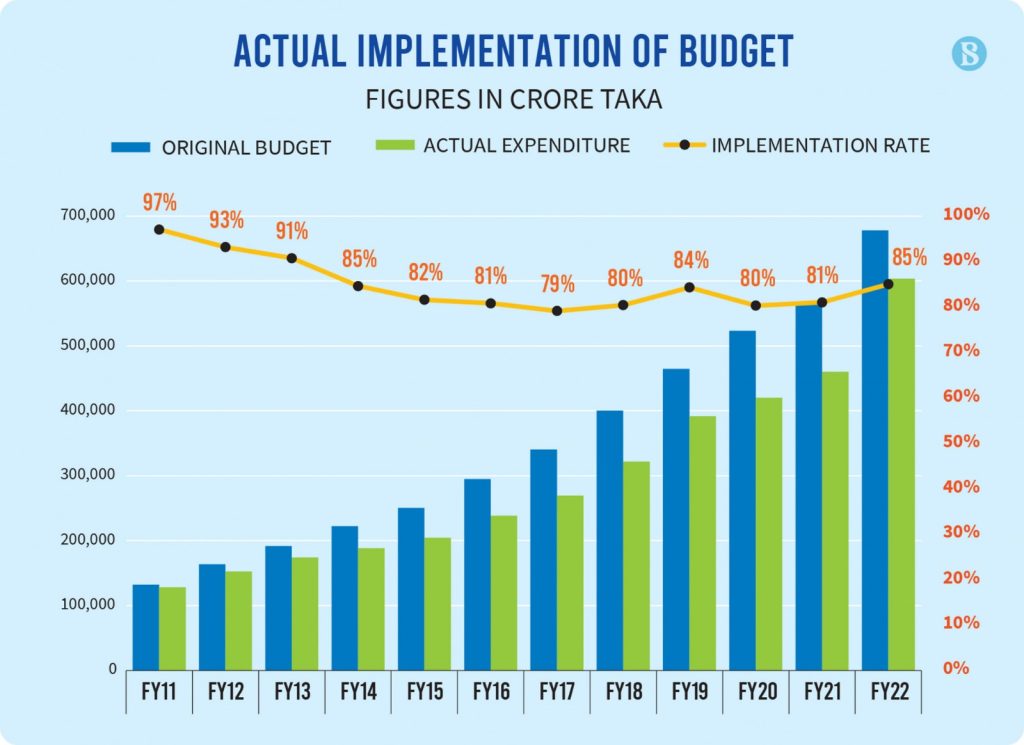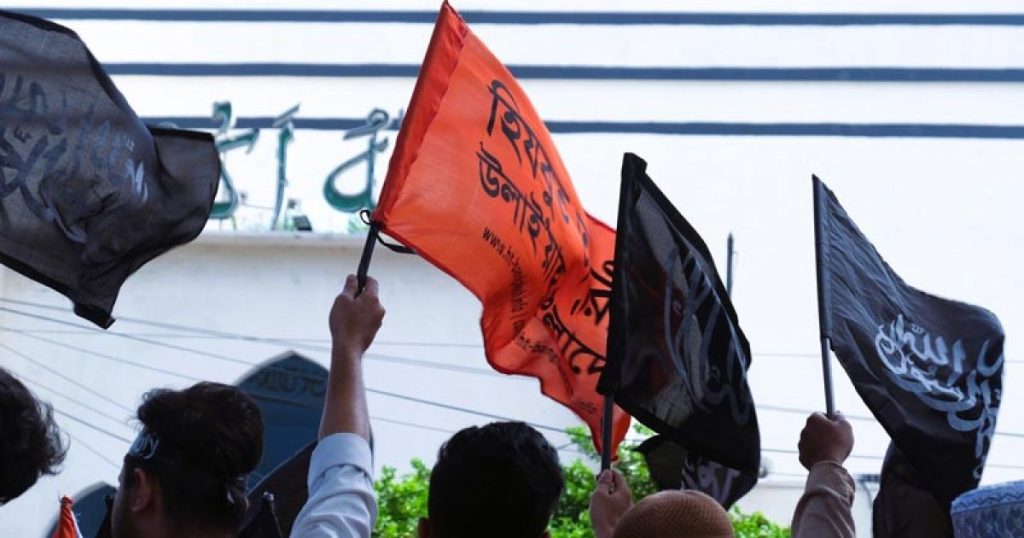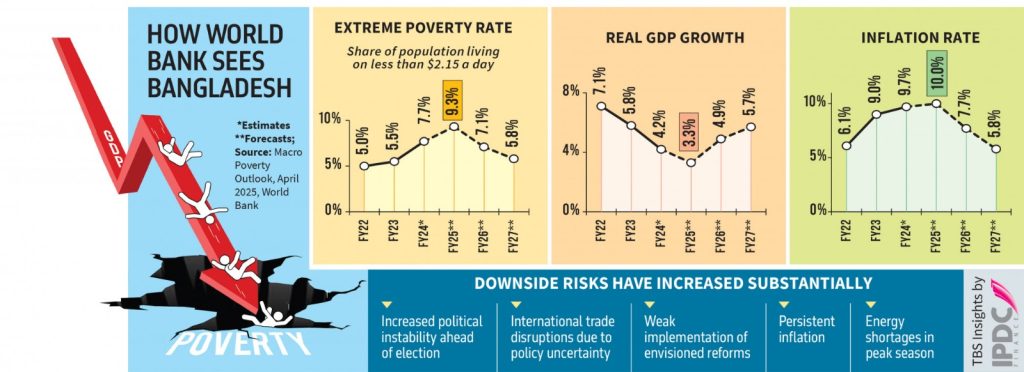In the early nineties, Shahbagh dawned pale and mysterious. It rose like an ancient city from rice-washed waters. Streets glistened as if inked with dust from Nawabi bakharkhani and ashes. Stalls at crossings exhaled jasmine, tuberose, and marigold. Restaurants thickened the air with parata, paya, dim vaja, and dal vuna. Rickshaws and cars rattled past like iron insects.
From the crossing, standing before PG Hospital toward TSC, you saw the Northern Road slip toward Bangla Academy and the Science Building. It carried students, teachers, people, and the hushed footsteps of history itself. By nine o’clock, rickshaws jostled for space. The campus pulsed with the life of a nation anchored at Shahbagh.
DU and Shahbagh bore history’s cruelty. They witnessed resistance, oppression, survival, and pride. Shahbagh was never just a market for flowers, food, books, and medicine. It was also an altar. Writers and thinkers debated over tea, killing kings and generals with words. The tar around TSC drank blood every decade — not clerics’, but young dreamers’. Leftist Student Union members, Chhatra League, secular bloggers, DU professors bled on its pavements, etching a red script the city could not wash away.
Assassins silenced voices one by one. When they struck my teacher, Dr. Humayun Azad, they carved permanent hatred into his face. He survived but lived only half in this world, until death claimed him in a German twilight, six months later.
DUCSU’s 2025 election became a theatre. Rigged stages allowed supporters of Avijit Roy’s killers to take their seats. In July 2024, 761 armed zealots, along with Jamaat-Shibir and the Islamic Alliance, roamed freely, plotting a Caliphate on soil that had chosen freedom a hundred years earlier.
A sharp question remains: why did no cleric fall to these assassins? Silence answers. It shows whose hands guided the knives. Many forces contended for Bangladesh’s soul, but none gnawed like the venom of religious politics.
Then came Sheikh Hasina — a stubborn flame. Extremists sought her end. Their hatred was absolute — for her democracy, her leadership, her ability to move the nation forward without surrender. She reached even to those who cursed her, bringing the Islamic community into national development. They did not thank her. They vilified her. Her light burned brighter in the dark.
***
We had another woman Prime Minister, Begum Zia. She flared like fire at whispers of her name. People said she bore the face and distance of a queen, the Duyo Rani, a vanished majesty of Bengal. Yet her consort, the Uzir-e-Azam of Bangladesh, could not bear her presence in state functions. He scorned Tagore songs and folk songs, once striking a tabla, declaring it unworthy, favoring the guitar instead.

In that same land rose Sheikh Hasina. Not merely a ruler, but a mother, a sister, a leader woven into the nation’s kinship. Metro pillars still bear the scars of July assaults, etched with her mural. A daughter of a martyred father, survivor of personal and national grief, she became the unyielding architect of modern Bangladesh.
A Tribute to Sheikh Hasina: From Bangabandhu’s legacy to global stateswoman
Sheikh Hasina reflects on her achievements, condemns rising poverty and violence
Sheikh Hasina announces 21-point demands for nation-building
Her tale weaves contradictions: history and aspiration, faith and reason, pragmatism and loyalty. Like a helmswoman steering a storm-tossed vessel, she guided Bangladesh through cyclones. Islamists sharpened swords, bombed rallies, and plotted murders. She guided her nation between genocide’s memory and tomorrow’s waves.
Her story is constant negotiation — life and death, history and aspiration, faith and secularism, pragmatism and principle.
Since 1971, Bangladesh has wrestled with religious groups’ politics. Sheikh Mujibur Rahman, her father, envisioned secularism as the backbone of a plural society. The 1972 Constitution promised equality and minority rights. Yet politics bent law and ideology.
Ziaur Rahman, in 1977, removed secularism and inserted “absolute trust in Almighty Allah,” though he was not a practicing Muslim. Later, Islam became the state religion. Despite promises of freedom, Bangladeshi politics has been fissured for decades.
The Fifteenth Amendment attempted reconciliation. Islam remained the state religion; secularism was restored as a principle. Yet equality in law clashed with lived inequality, especially in family law. Women, 51% of the population, inherited less and had fewer rights in divorce. Neo-liberal pressures further widened the gap.
***
Amid this backdrop, Islamist networks emerged. Bangladesh’s political terrain oscillated between secularist ideals and Islamist Caliphate dreams. Early leftist movements never translated grassroots support into power. Military rule under Ziaur Rahman and Ershad allowed Islamist parties, including Jamaat-i-Islami, to campaign and erase their 1971 role. By the 1990s, these parties manipulated global campaigns against Bangladesh, dehumanizing Sheikh Hasina and the Awami League.
Islamist parties are not monolithic. Both Muslims and non-Muslims could be “others” to them. Pragmatist opportunists sought influence through elections. Orthodox Madrasah-rooted parties enforced religious orthodoxy. Militant networks like HuJI-B and JMB reflected ambitions and anxieties across Bangladesh’s spectrum.
By the early 2000s, despite violent outbursts, the Islamists’ electoral footprint remained modest. In 2008, Jamaat-e-Islami won just two parliamentary seats. Their vote share barely rose. Yet their ideology ensured a continuing presence, bolstered by alliances with the BNP.
Hasina’s leadership emerged in this weave of secular aspiration and Islamist resurgence.
***
As we consider the arc of her leadership, she has been a testament to endurance and vision. She is a Bengali woman whose life story is inseparable from the nation she leads—a leader who has risen above personal loss, political tumult, and ideological warfare to steer Bangladesh toward stability and dignity. Her legacy, still in formation, is a chronicle of courage, intellect, and unwavering commitment to the principles that define a free and sovereign nation.
She confronted extremism through deliberate policies, not rhetoric. In 2007, when the caretaker government attempted reforms to empower women, Islamist factions mobilized. Hasina remained resolute, promoting gender equity, constitutional rights, and legal reform. Her stance was both moral compass and political strategy.
Her foreign policy reflected a similar balance. In the shadow of global Islamism, post-Afghan geopolitics, and reliance on Middle Eastern labor, she acted decisively. She built ties with the US, Russia, OIC, and Gulf States while asserting sovereignty. Her leadership resembled Angela Merkel or Jacinda Ardern: principled, decisive, attentive to human cost. Unlike many, she negotiated continually with domestic extremists for inclusiveness.

Muhammad Yunus, often critical of Bangladesh’s democracy, aligned, intentionally or not, with fundamentalist sympathies. Where Yunus portrayed chaos, Sheikh Hasina embodied constitutional resilience, national progress, and the people’s faith in democracy. She acted as a sentinel of civil society, defending law, order, and reason against extremists exploiting religion.
***
Domestically, Sheikh Hasina pursued social transformation. She reclaimed salish and fatwa from Islamist manipulation. She asserted the law while respecting culture. Tradition and reform danced together under her guidance. She ensured legal structures and moral legitimacy aligned. This stance made her unpopular among Islamist groups.
Unlike male Muslim counterparts like Recep Tayyip Erdoğan, who wield nationalism and religion for Islamic imperialist power, Hasina chose a different path. Her leadership emphasizes democratic resilience, social equity, and national progress. Her trajectory is unique, balancing principle with pragmatic reform.
Her philosophy recognized the limits of power while pushing the boundaries of reform. Shaped by life’s traumas — assassination attempts, political imprisonment, personal loss — she governed not merely through authority, but through a narrative of moral courage rooted in the nation’s liberation struggle and the ethical responsibility that flows from it.
Even amid current propaganda and Yunus’ vengeance, she upheld secularism, democracy, and security. She knew freedom was fragile and stewardship essential. After the July atrocities, she called for peaceful resistance and self-defense. She defended the nation’s faith in the liberation struggle and its principles.
Hundreds of thousands of young men and women in her party, all victims of violence, find solace in her words.
She moves among them with voice and presence, though often only through the phone, speaking courage into hearts drained by fear. Hour by hour, she helps them lift themselves, regain strength, and hold fast to hope.
Inspired, citizens have been gradually rising to reclaim their secular land, step by deliberate step.
To them she vows, unwavering, to restore the progress the July conspirators sought to erase, to rebuild what hatred tried to burn away.
In every call, every word, she weaves resilience, and the nation listens, learning to stand again.
***
Her fight is both symbolic and practical: defending the nation from ideological subversion while advancing to let her people reclaim their country on track, from where it can only go forward. Unfortunately, some of the ideological policies that empowered citizens, strengthened institutions, and fostered economic growth were curtailed by the Interim Government of Muhammad Yunus.
The interplay of religion, politics, and militancy has left indelible marks on Bangladesh. Yunus’ phase revealed extreme sectarian violence and attacks on minorities and secular society.
According to World Bank projections, Bangladesh’s economy is at an all-time low now in 36 years.
***
Meanwhile, the interim government, backed by Islamist Caliphate movements, posed moral and security crises. Yunus’ tenure, while failing to make significant headway, was extremely critical of previous government leaders and highlighted extreme forms of sectarian violence nationwide: attacks on minority Hindus, Ahmadis, Sufi practitioners, Bauls, singers, theater activists, and anyone cherishing Bengali culture, as well as members of the secular civil society, including university teachers, veteran freedom fighters, and supporters of Sheikh Hasina’s party, the Awami League. Even as this article is being written, people in the Hill Tracts remain under attack.
Violence carried out by extremist-aligned July protesters (Jamat-Shibir, alliance of Islamic-state groups and BNP) includes extortions, killings, extrajudicial deaths in prison, assassinations of targeted political party members, Hindus and supporters, rape accompanied by killing and other attacks—has often been falsely attributed to Sheikh Hasina’s party members. Who are now banned and face the threat of mass arrest or execution.
***
Sheikh Hasina stands as a testament to endurance and vision. Her life story is inseparable from the nation. She rose above loss, turmoil, and ideology to guide Bangladesh to stability and dignity. Her legacy is courage, intellect, and commitment to freedom and sovereignty.
Her foreign policy anchored Bangladesh as a distinct part of South Asia. She built connectivity with India, balanced ties with China and the West, and championed refugee protection and climate resilience. Dhaka became a bridge, not a pawn, but a pivot — mediator, trade hub, moral voice.
Yet Yunus, the self-styled “global player,” leans on Hasina’s 15-year foundations. Unskilled, morally adrift, he allows extremists to shape policy and occupy the administration. He builds on her achievements: the Padma Bridge, highways, metro, and ports.
***
In this light, Prime Minister Sheikh Hasina is more than a national leader; she is the cornerstone of a possible new South Asia — one defined less by rivalry and more by interdependence. Her example shows that democracy is not merely a system of governance but a shield against extremism, a philosophy where negotiations and diplomacy replace war, and a canvas on which small nations can sketch a pragmatic path to development. Above all, her leadership is an art of stewardship, allowing a nation to reconcile faith, freedom, and civic responsibility.
The West should give her the credit she deserves. Her government had limitations. But her leadership has delivered precisely what Western policymakers claim to value: stability in a volatile region, steady economic growth in one of the world’s most crowded countries, a bulwark against extremism, and a rare example of a Muslim-majority democracy.
Bangladesh has avoided sectarian collapse over the last two decades. Yet Islamic-state actors repeatedly wounded and insulted it and its secular leadership. The July conspirators sought to crown Yunus for a dreamt Caliphate. They share the ideology that tried to undo Bangladesh in 1971. Few nations face actors aiming to reverse progress. Jamaat, Shibir, Hizb ut-Tahrir — extremists plotting jihad against non-Muslims — drove the July quota protests. They aim to make Bangladesh part of an Islamic Empire.

These are the members of the same ideology that tried repeatedly to undermine the liberation, the birth of the nation in 1971, and the liberation heroes. The nation still carries that betrayal in its heart.
Few nations must endure this misfortune — to harbour such actors who provide services to the intent of an Empire on reversing progress and dragging the country back into non-development. Jamaat, its student wing Shibir, and Hizb ut-Tahrir, the Extremists who want to fight Jihad against Non-Muslims, the very actors behind the July quota protests, know well that their vision for Bangladesh will be to make it a part of the Islamic Empire and turn the Non Muslim world into believers of Islam.
***
Since July 2024, Muhammad Yunus has faced criticism over alleged dishonesty and controversies surrounding his Yunus Centre. Several claims about his work have been publicly disputed. He had many achievements to focus on, yet he attempted to enter politics without understanding it, leading the country into turmoil. His prior work should have secured his reputation and well-being. Instead, he pursued political involvement. All the new projects he initiated since July 2024, were funded with the money of ordinary Bangladeshis. Meanwhile, the World Bank reports that 36% of the population is falling into poverty again.

Sheikh Hasina’s long tenure continued to shape Bangladesh’s political stability and economic growth. Major infrastructure projects, with the potential to strengthen regional connectivity across South Asia, and social programs are closely linked to her government. Meanwhile, opposition parties maintained their business and economic activities but often boycotted elections, challenging the government’s effectiveness and attracting international scrutiny. Their actions have left the political environment fragmented and weak, highlighting the ongoing challenges in Bangladesh’s democratic landscape.
Analysts note that supporters view Hasina as central to governance. Critics, however, warn that overreliance on a single leader could strain democratic institutions and create long-term vulnerabilities.
Observers also point to ongoing challenges in the interim government, including allegations of mismanagement and misuse of foreign currency earnings. With no strong alternative leadership and limited public support for Jamaat-e-Islami, Hasina is seen by many as the only viable option. Experts suggest that cultivating new leadership will be crucial for the country’s resilience.
Sheikh Hasina’s achievements often went overlooked. Her strategic balancing — India and China, Islam and secularism, growth and equity — is still ignored. Recognizing her is not flattery. The West’s vision of a stable, plural, prosperous South Asia cannot exist without a democratic process in Bangladesh.
Bangladesh remains a hardworking nation, its people brimming with dreams and untapped potential. Political analysts say that effective leadership, guided by strong institutions, human development, and a delicate balance with neighbouring and regional nations, will be crucial for the country’s stability, growth, and the protection of its sovereignty. This vision, shimmering on the horizon of possibility, is one that Sheikh Hasina still holds dearly, like a lantern lighting the path forward.
Jahanara Nuri: Journalist and Writer; can be reached at rfrnet01@gmail.com.